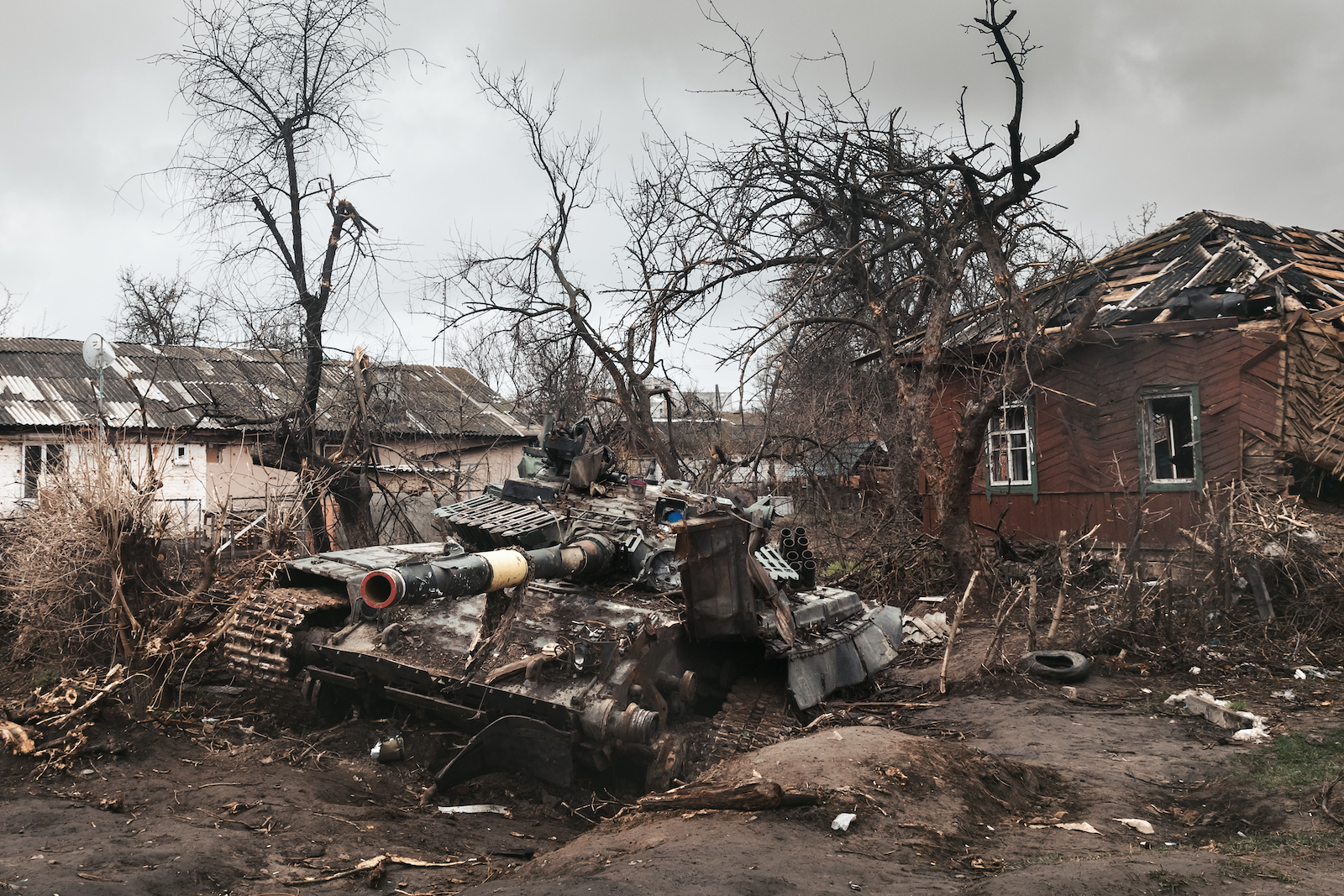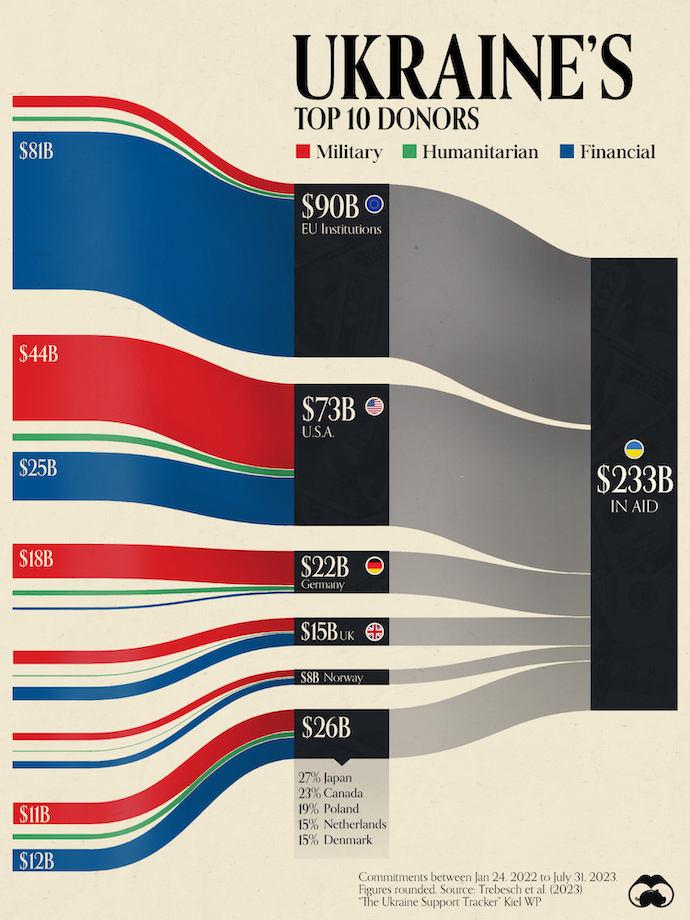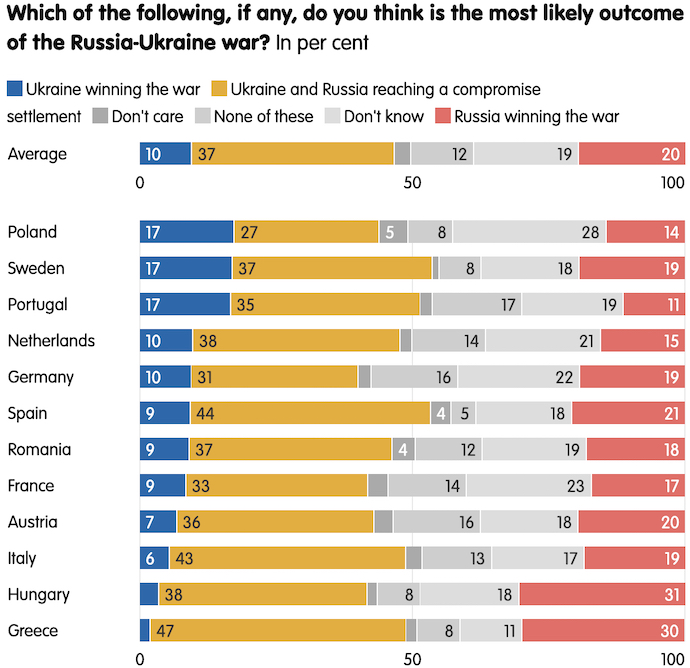
Western Rifts Over the Ukraine War?
819 days have passed since Russia’s full-scale invasion of Ukraine. As the conflict drags on with no end, the war continues to be a complex nexus of geopolitical tensions, historical grievances, and power dynamics, drawing in regional powers and global actors alike.
The United States and its allies have provided consistent military and political assistance to Ukraine, which has been instrumental in withstanding Russian attacks. However, within this response, rifts have emerged, reflecting divergent interests, threat perceptions, and historical alliances. Some advocate robust military support to ensure a Russian defeat, while others prioritize caution, diplomatic engagement, and de-escalation through diplomatic settlement. These divisions manifest across military assistance, economic sanctions, and broader strategic considerations, exacerbating tensions within revived transatlantic solidarity.
Understanding these rifts is essential for comprehending the dynamics of the war and shaping future responses to similar crises. Efforts are underway to address the growing rifts through enhanced diplomatic engagements among European partners, emphasizing the imperative of forging a cohesive and effective Western strategy to address the challenges posed by Russia.
Initially, few would have imagined Ukraine would sustain itself long against one of the largest military powers in the world. However, after two years, Ukraine has reclaimed 54% of its occupied territory, while Russia still controls 18%. Thanks to continued Western support, Ukraine has shown remarkable resilience. Since January 2022, Ukraine has received approximately $233 billion in aid, with the United States providing $73 billion of that support.
However, donor fatigue is setting in, with persistent resource commitments to a protracted war showing no signs of a positive resolution. Russian Press Secretary Dmitry Peskov warned, “Fatigue will lead to the fragmentation of the political establishment.” Divisions are growing in the West regarding the war’s future direction and resolution strategies.
Divisions among European partners are already visible. French President Emmanuel Macron’s recent suggestion about deploying troops to Ukraine sparked controversy, with German Chancellor Olaf Scholz expressing reservations about deploying Germany’s Taurus cruise missiles. Scholz emphasized that deploying long-range Taurus missiles would necessitate German soldiers on Ukrainian soil, a boundary he was not willing to cross.

Similarly, NATO and the U.S. ruled out committing ground troops to Ukraine. Italian Defense Minister Guido Crosetto criticized Mocron’s proposal, asserting that Paris lacks the authority to speak for all NATO members. However, many experts believe divergent opinions have been instrumental in achieving the ‘strategic ambiguity’ that Macron aimed for, creating uncertainties for the Russian military.
Rifts are also visible among Central European nations. The Visegrad Four—comprising the Czech Republic, Poland, Hungary, and Slovakia—exhibit sharp divisions in their views on the war. While the Czech Republic and Poland are prepared to offer military aid, Hungary and Slovakia have opted against sending arms but express readiness to contribute humanitarian or financial aid.
The Ukraine conflict has divided Europe into two distinct groups. The first group—comprising the Baltic states, Nordic countries, Poland, and other Eastern European nations—advocates for the decisive military defeat of Russia and punitive measures to deter future aggression. Conversely, the second group—including Germany, France, and Southern European states—seeks to avoid escalating the conflict, recognizing the dangers posed by a cornered nuclear-armed Russia. They advocate engaging with Russia in some capacity, acknowledging its significance as a neighboring country.
The countries in the first group, geographically closest to Russia, view Ukraine as a crucial buffer between Russia and the rest of Europe. This perception motivates them to allocate more resources to support Ukraine. As Swedish State Secretary Diana Janse pointed out, while the costs of aiding Ukraine may seem high, they pale in comparison to the potential consequences of not resisting Russian aggression. Conversely, the second group is cautious about providing further military aid, fearing uncontrollable escalation.
This divergence has already weakened Germany’s relations with its eastern and northern European neighbors. Finland, for example, has begun making independent decisions without awaiting Germany’s input. From Germany’s standpoint, transitioning from a historical narrative of non-military solutions to recognizing military intervention as necessary in the Ukrainian context has proven challenging.
Tensions between the U.S. and Europe are escalating, fueled by the perception among several European nations that the U.S. is disproportionately benefiting from the conflict. This sentiment is exacerbated by trade disruptions caused by U.S. subsidies and soaring energy prices, which risk eroding public support for the war effort and the transatlantic alliance. U.S. President Joe Biden’s green subsidies and taxes, criticized by Brussels for skewing trade in favor of the U.S., further exacerbate the situation. European consumers are paying nearly four times more for U.S. gas compared to American consumers, a point of contention highlighted by French President Emmanuel Macron.
Numerous European countries have voiced criticism of the U.S. approach, perceiving it as exacerbating tensions. Slovak Prime Minister Robert Fico characterized the Western approach as “an absolute failure,” emphasizing his disbelief in a military solution. Hungarian Prime Minister Viktor Orbán has similarly argued that negotiations are the only viable means to end the conflict. Former Spanish Foreign Minister Josep Piqué posed critical questions for Europeans: should they cede control over the conflict’s trajectory to the Americans, or should their pursuit of peace and prosperity be contingent upon American interests?

The year 2024 is regarded as a pivotal election year, serving as a litmus test for democracies across the globe. Amid national elections, the Ukraine conflict is emerging as a significant political agenda item in the West. Political parties are grappling with balancing military aid and voter sentiment. The impending elections in partner countries such as Poland, Slovakia, and the U.S. are complicating matters, as certain candidates prioritize domestic issues over military support for Ukraine.
The U.S. presidential election introduces uncertainty regarding America’s ongoing support for Ukraine. Concerns among experts suggest that a potential Trump presidency could reduce financial and military assistance. Over the past year, public opinion has shifted, with the proportion of Americans believing the U.S. is providing too much assistance to Ukraine nearly quadrupling, while those feeling Washington has not done enough have decreased significantly. This sentiment is reflected in legislative efforts, with ten Republican House members advocating for ceasing aid to Ukraine and urging all parties to pursue a peace agreement.
The consequences of such rifts are becoming increasingly evident. The EU’s initiative to manufacture 1 million artillery rounds for Ukraine has fallen short, and the U.S. Congress finally passed a $95 billion war aid measure which included $61 billion for Ukraine. Without a unified European stance affirming Ukraine’s defense of European interests, there is a risk that the U.S., the largest donor to Ukraine, might shift its attention elsewhere.
A critical debate is unfolding among Western policymakers regarding the potential contours of a political settlement in Ukraine. Reaching a consensus may prove challenging as Western partners are divided into two distinct groups. Analysts observe a concerning trend indicating that the parties involved are moving further from meaningful peace talks, lacking confidence and sincerity in pursuing dialogue.
The divisions within the Western alliance signal to Russia that the cohesion of the West is weakening, potentially motivating further aggression. These divisions may embolden other states to interfere in their neighbors’ affairs with impunity. Hence, it is crucial for Europe to maintain unity in its support for Ukraine during this critical period. The consequences of a failed response could have far-reaching implications.
Despite these visible rifts, Western partners have maintained their commitment to providing military aid to Ukraine. European countries have demonstrated increased dedication to supporting Ukraine, as seen during the Munich Security Conference 2024, where President Volodymyr Zelensky addressed world leaders.
Sustained diplomatic engagements among European partners have been instrumental in maintaining a unified voice. Despite diplomatic tensions and unease sparked by Macron’s suggestion to deploy troops, German Chancellor Olaf Scholz convened a meeting in Berlin with Macron and Polish Prime Minister Donald Tusk. The objective was to explore enhanced strategies for supporting Ukraine. Following the discussions, all parties expressed satisfaction with their collective response to the Ukraine conflict, with Macron emphasizing the unity among France, Germany, and Poland.
The Ukraine war has highlighted the complexities within the Western alliance. Despite differences in opinion, Western partners have maintained support for Ukraine through diplomatic engagements and continued support. However, ongoing rifts necessitate vigilance and open discussions. It is crucial for Western partners to remain united in their support for Ukraine to effectively address shared challenges and uphold transatlantic solidarity.

